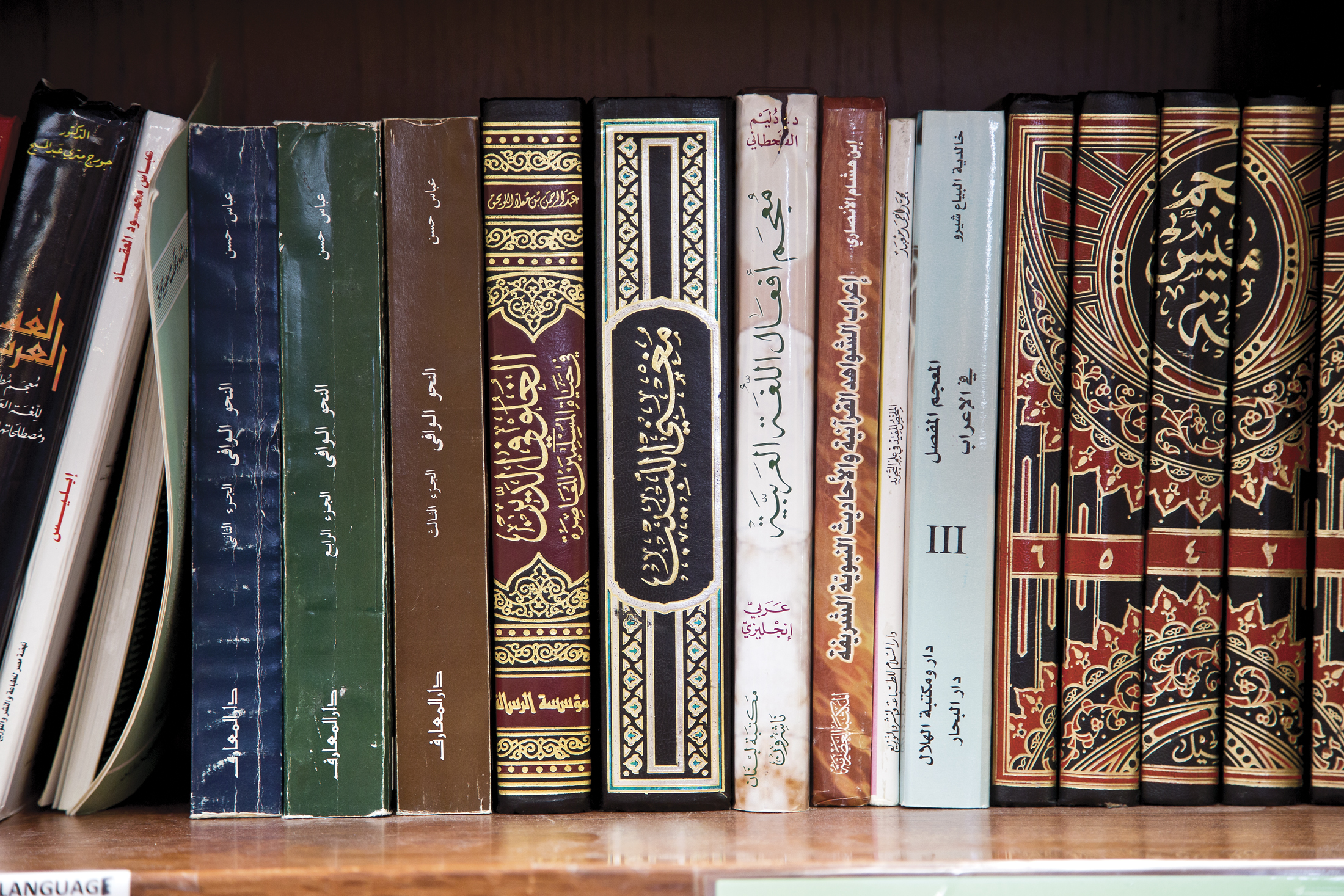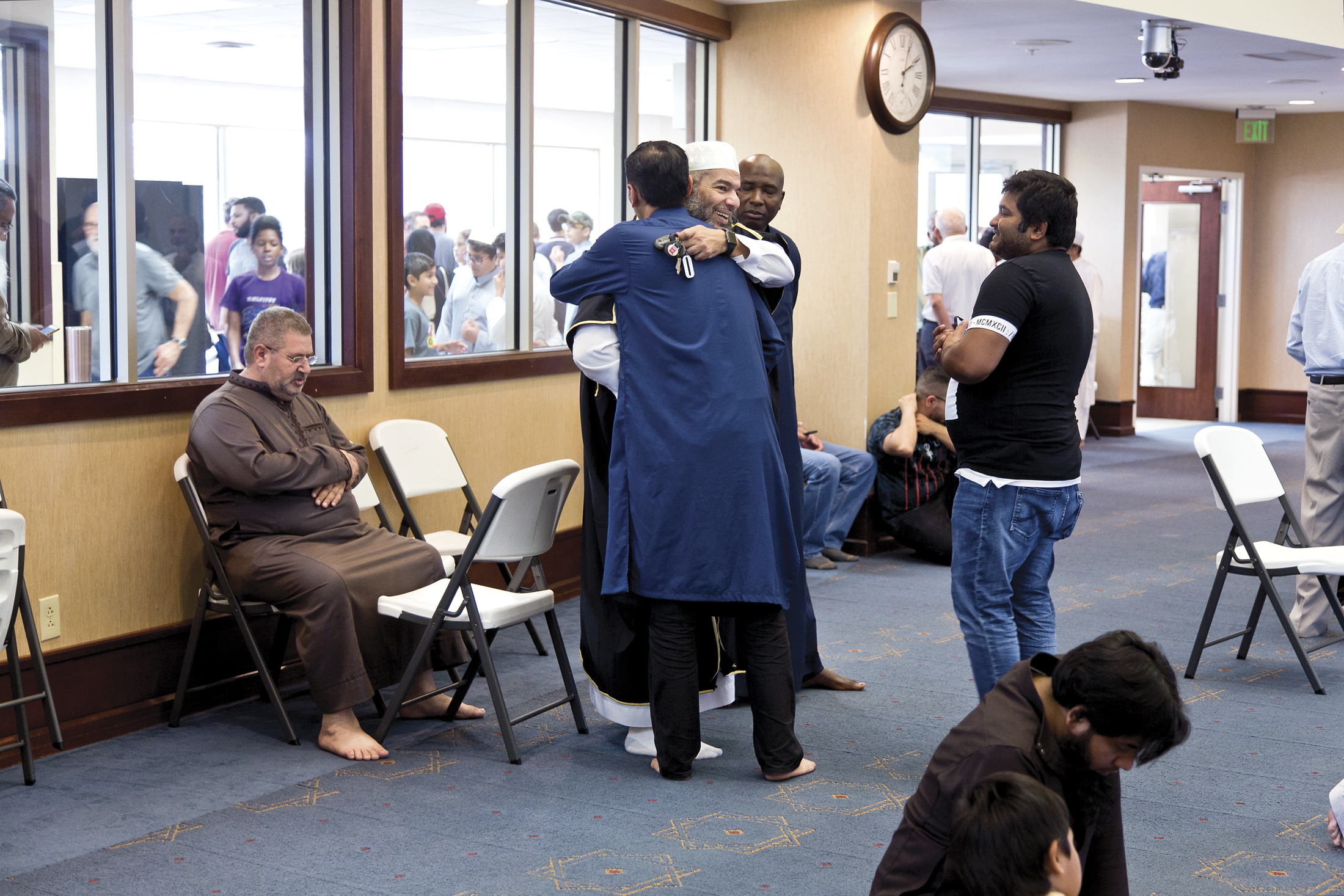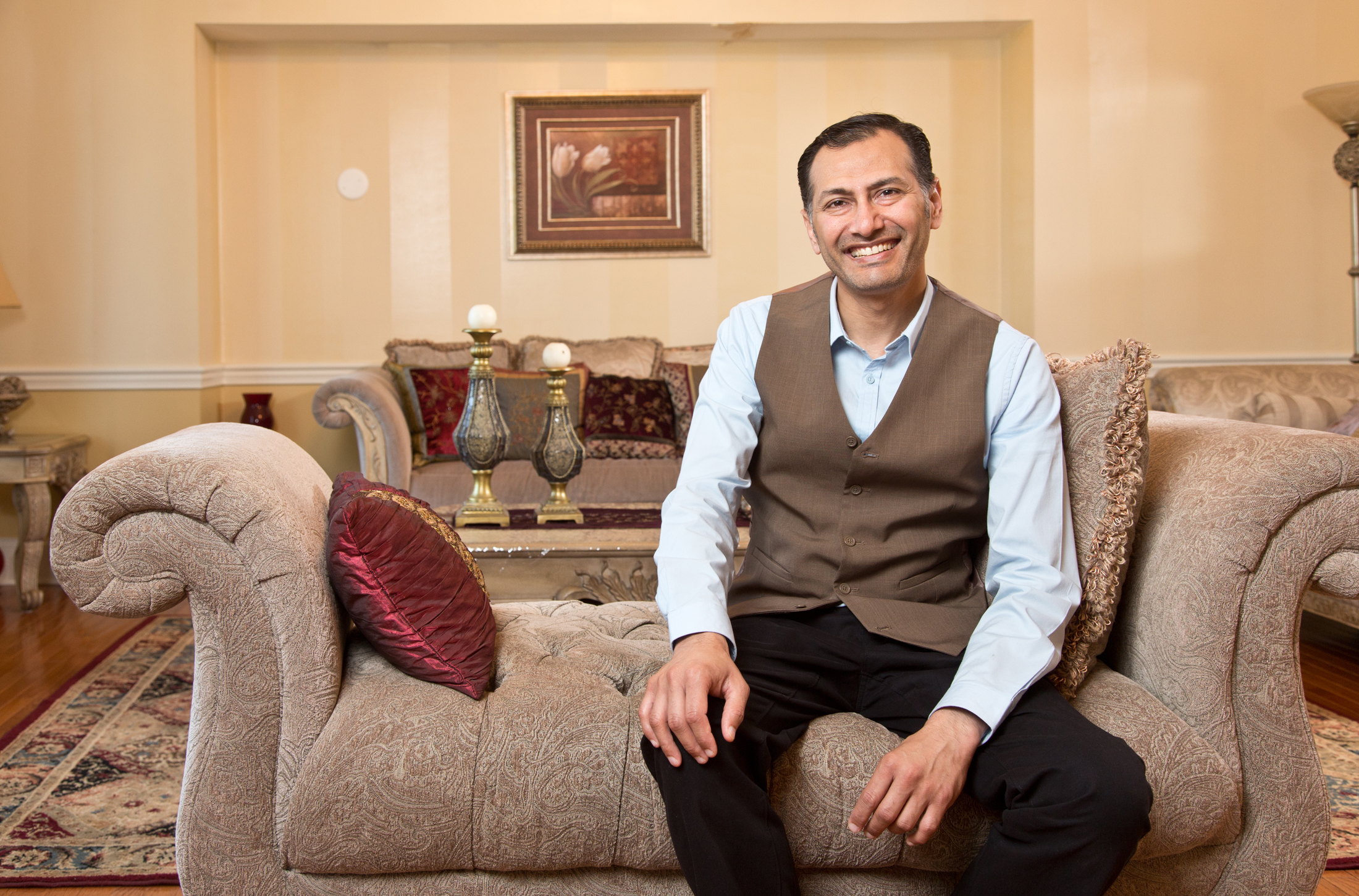
Imran Malik
Imran Malik shares only a couple of sentences of the story he is telling before he pauses, and his dark eyes gaze off into the distance. Though his body remains in that leather chair in his family’s Dublin living room, emotion has swept his mind back to a hospital room where the drone of beeping machines pounds in his head and fear threatens to drown him.
It was 2004, and Malik and his wife, Atifa, were huddled around the incubator that held their second son, Raiyaan-Ali. The umbilical cord had been wrapped around the infant’s neck at birth, and there were complications. So the couple found themselves rushed to the neonatal intensive care unit at Nationwide Children’s Hospital, hoping for answers and clinging to prayer.
“As a father, I didn’t know what was happening,” Malik recalled. “As a family, we were scared.”
But as their son’s 20-day stay wore on, the Maliks noticed the overwhelming kindness of strangers.
“They would bring toys. They would bring gifts. They would bring blankets. People, everywhere. Who are all these people?” he wondered. “I asked and I found they were volunteers. All of this love coming our way from people who didn’t know us? It was a turning point in our lives. This is really the way we make the world a better place. We will be catalysts. We will make small gestures of love.”
Born in Pakistan and raised in Bahrain, Malik immigrated to the United States in 1996 to study engineering at Wright State University in Dayton. Though he uses his degrees and works in the telecommunications industry, it is through his roles as interfaith and outreach coordinator at the Noor Islamic Cultural Center in Hilliard and as a leader of the local interfaith community that he has made his mark. Malik’s friends and colleagues hold him up as a community pillar, an indefatigable faith leader, a comforter in times of sadness and a uniter in times of turmoil.
“I have found Imran to be a ray of light in a pretty dark world, especially the past couple of years when social justice and social change has been a challenging business to be in,” said Rabbi Sharon Mars of Temple Israel on East Broad Street. “He has a really built-in sense of when and how we need to come together as a faith community. So many of us look to him as our faith compass, and he is the voice of calm.”
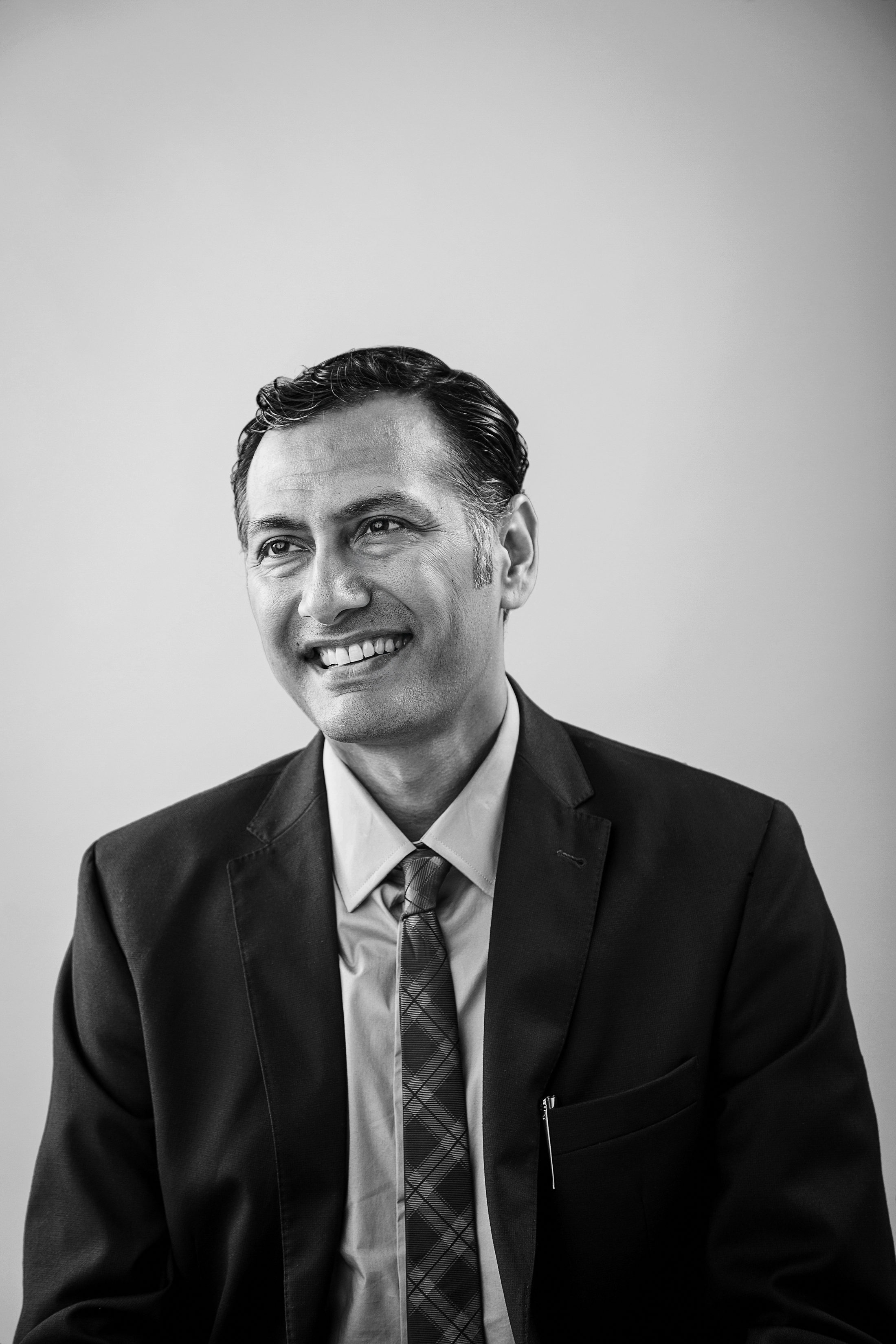
Since arriving in Columbus in 2005, Malik has taken the lead in pulling together practitioners of all faiths—Christians, Hindus, Muslims, Jews and so many others—for common community goals and to foster better understanding, Mars said.
She said that Malik is at his best when the world is at its worst, just as he proved in the hours and days that followed the news in October that a gunman had stormed the Tree of Life Synagogue in Pittsburgh, where three separate congregations were conducting Sabbath services. Eleven people died. The following week, Malik and his family and friends showed up at Temple Israel. He carried two dozen white roses and delivered hundreds of cards written by the children of his mosque.
“They came to my synagogue to sit in meditation and breathe the same air, and it was exactly the kind of response we needed to counter the hate in the world,” Mars said. “There is no ‘us’ and ‘them’ in Imran’s world.”
Malik, 44, excused himself so that he could wipe away his tears when recounting the story of his sick child, who now is a healthy and active 15-year-old middle schooler. The couple also has another son, 17-year-old Hussnain, and a 10-year old daughter, Soha. But that wasn’t the only time his emotions got the best of him, because there have been many people and many instances that have influenced and changed him, he said.
Imran Malik
Neighborhood: Dublin
Inspiration: His late mother, the empathy she taught him, the good work he saw her do in her community to motivate him and and the values for love and understanding that were her core beliefs.
What keeps him engaged: His family and his community. “We have to find love, beauty and passion in God’s diversity,” Malik says. “God has created us all differently for a purpose.”
A challenge he has overcome: Immigrating to the U.S. for college was not easy. But this quickly became home for Malik. And, as a Muslim, the hatred and bigotry expressed against so many cultures and religions does not always avoid him. “You balance hatred and condemnation with love and affection,” he said. “It is the only way.”
His understanding of boundless love started when, as a boy in Bahrain, he watched his mother shower it upon everyone. Those living in the Middle Eastern region at the time were aware of the tyrannical rule of Saddam Hussein in Iraq, and chemical warfare was a very real fear.
“We learned to cover ourselves with towels for protection, to always be mindful of what could happen,” he said. But his parents were strong, and his mother, Kishwar, was always speaking up for what she thought was right, always figuring out how to help anyone who needed it.
Bahrain was a pivotal hub during the Gulf War, with combat planes roaring through the skies and patriot missiles whistling overhead. Malik remembers that any time there was a threat, his mother sheltered her own family first—but then she always headed outside.
“She would make sure the neighbors and the children were all safe,” he recalled, tears in his eyes once again. “My mother believed in humanity. She went beyond our borders to help others. She demonstrated love, she did not just talk about it.”
Kishwar Malik died in 2009, but it was her teachings of understanding and her appreciation of different cultures that drove his commitment to make the Noor Islamic Cultural Center a beacon of solidarity in what can sometimes seem to be an otherwise fractured society.
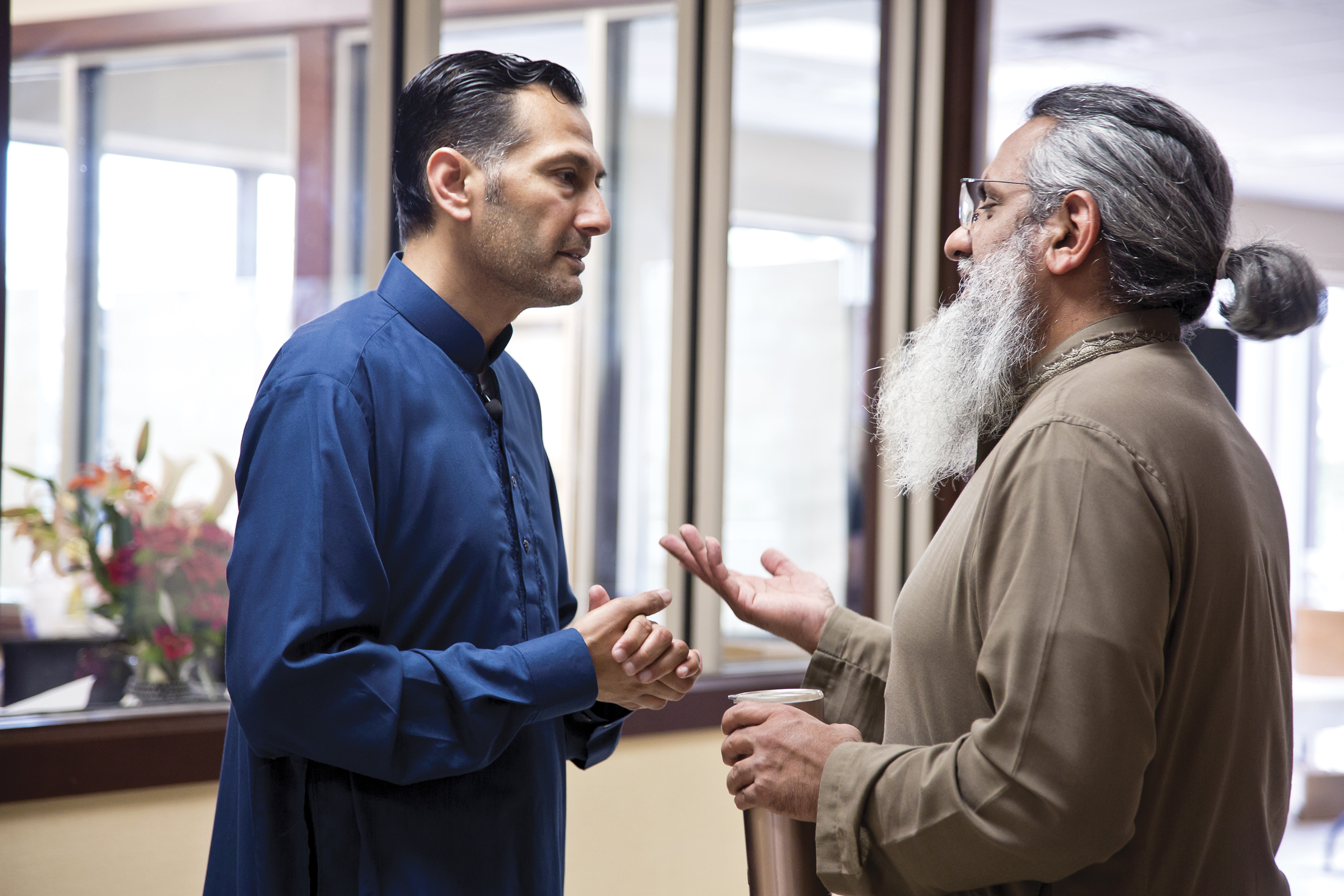
Malik has thrown open the doors to the mosques; he leads classes such as Muslim 101 and hosts events during religious periods such as Ramadan to help those of other faiths understand its significance. Together the interfaith council hosts panels and conversations, performs community service, holds charity drives and participates in nonreligious community events.
“We often get too hung up on theoretical approaches,” Malik said. “When the chaos occurs, it is always our differences that are amplified. But at the end of the day, everyone just wants to do good work.”
The Rev. Tim Ahrens recalled a meeting a few years ago to discuss the opening of what is now Washington Gladden Social Justice Park, built next to Ahrens’ First Congregational Church on Broad Street. Faith and community leaders had gathered to talk about the plans, but there was an empty seat at the table. Malik was late.
When he arrived, he apologized. He had been up the street meeting with a family whose child had been wounded in the crossfire of a neighborhood gun battle.
“He is the real deal,” Ahrens said. “The rest of us were sitting around a table and talking, and Imran? He was out there doing.”
Malik is uncomfortable with taking credit or hearing praise. After all, he says, we’re all in this together, and we all have a responsibility to shine a light in darkness.
He is proud of the interfaith work this community has done, but recognizes there is a long road ahead. He likes to think he understands the way, though.
“Fighting hatred with hatred is only going to create more chaos,” he said. “Bringing people together is really the only solution at hand.”
